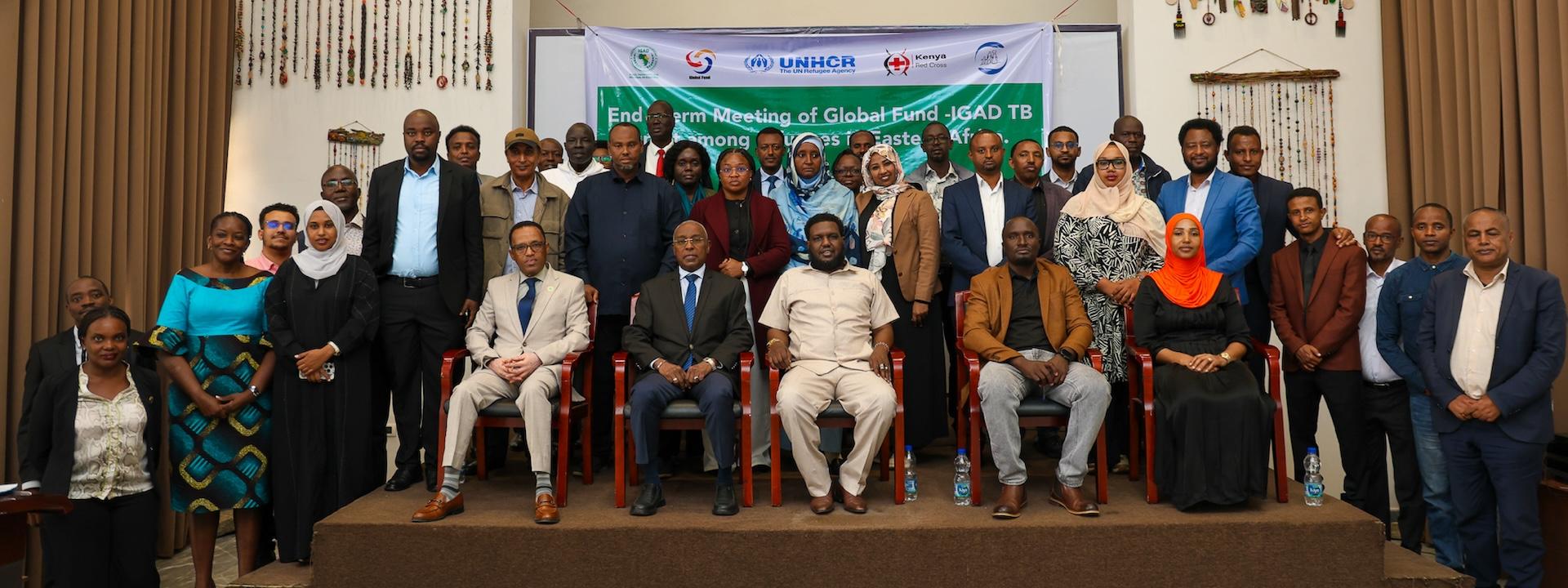September 30, 2025 (Bishoftu, Ethiopia): The Intergovernmental Authority on Development (IGAD), in collaboration with UNHCR, the Kenya Red Cross Society (KRCS), and the Refugee and Returnee Service (RRS) of Ethiopia, convened the closure meeting of the Global Fund–supported TB/HIV grants in refugee camps and settlements across the region.
Since 2016, IGAD and its partners have implemented three consecutive Global Fund grants that transformed health service delivery in refugee settings. The interventions expanded access to HIV testing and counselling, improved availability of Anti-Retroviral Treatment (ART), introduced advanced TB diagnostics such as GeneXpert and FLM machines, rehabilitated health facilities, built the capacity of health and community health workers, and strengthened community-based outreach programmes.
The final continuation grant, valued at USD 6.43 million and implemented from April 2022 to March 2025, focused on TB and MDR-TB diagnosis, enhanced TB/HIV service delivery, and promoted cross-border collaboration among national TB and HIV programmes. The grant achieved an overall performance rate of 105% with an A1 rating, surpassing expectations.
Delivering remarks on behalf of IGAD Executive Secretary H.E. Dr. Workneh Gebeyehu, the Head of Mission to Ethiopia, Mr. Abebaw Bihiogen, praised the collective achievements and urged continued commitment:
“The successful completion of this grant is not the end of our journey, but a milestone in our shared commitment to protect the health and dignity of refugees and host communities. On behalf of H.E. Dr. Workneh Gebeyehu, I wish to commend the collective effort of our Member States and partners, whose collaboration has delivered tangible results. Our task now is to sustain these gains, strengthen cross-border cooperation, and ensure that no one is left behind in the fight against TB and HIV in our region.”
As the meeting moved into country-level group discussions, Member States shared strategies to sustain the gains beyond the grant period. An emotional moment came when the Sudanese delegation recounted the devastating impact of the war on both people and programmes. They described how the conflict has halted project implementation and reversed years of progress in the fight against TB and HIV.
The delegation raised grave concerns that while the grant was originally designed to support refugees, the war has multiplied the crisis by fueling mass displacement, deepening funding and staffing shortages, and overwhelming fragile health systems. They also pointed to alarming increases in malnutrition, poor sanitation, and preventable disease outbreaks, all of which are compounding the TB and HIV burden.
Their testimony served as a stark reminder that the human cost of conflict extends far beyond the battlefield, striking at the very heart of health and survival. IGAD reaffirmed that even as the grant comes to a close, its commitment to the people of Sudan endures, pledging to continue working tirelessly with partners to support their pursuit of peace, resilience, and dignity.
The meeting concluded with a resounding message: sustaining the progress achieved requires long-term investment, government ownership, inclusive health strategies, and stronger cross-border cooperation to protect vulnerable populations and ensure no community is left behind.


